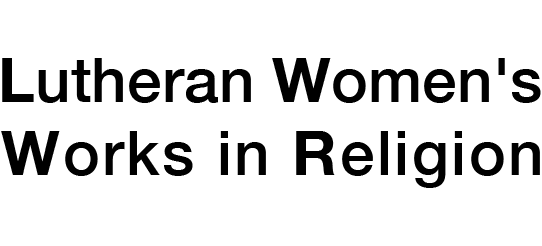Category: Biblical Studies
JOURNAL ARTICLES
Elizabeth Huwiler "Authorized Conflicts: the Bible in Church Conversations" 34 In Biblical Theology Bulletin. 2004 : 41-45Suggests that arguments within biblical-heritage religions are often between those whose greatest fear is fall into chaos and those whose greatest fear is oppression from tyrannical forces. The Bible reflects corresponding arguments within ancient Israel and the nascent church. The use of biblical texts often functions to fuel those arguments rather than to resolve them.
Drawing on personal interviews with six Arab Christian women living in the United States, the article reinterprets the Luke 15 parables in light of the women’s own responses to the parables and their experiences of life in the modern contexts of Egypt and Lebanon.
The article traces the history of Lutheran women’s Bible studies in the United States back to the late 1800s, reports reflections of contemporary Bible study authors and participants, and analyzes the role of biblical critical methods and Lutheran theology in such studies. With Susan McArver and Diane Jacobson.
The essay answers the question of how and when biblical critical methods can be used in combination and ways in which the texts themselves encourage shifts from one method to another. The particular test case is George Kennedy’s rhetorical analysis of the Sermon on the Mount in Matthew 5-7.
This article is an expansion and updating of the chapter described in The Daemonic Imagination edited by Detweiler and Doty.
In response to McVann’s “Reading Mark Ritually: Honor-Shame and the Ritual of Baptism,” this essay summarizes McVann’s application of Victor Turner’s ritual model and assesses support for McVann’s thesis about Jesus’ status transformation in Mark’s gospel, while raising larger questions about the functioning of ritual in relation to boundaries and the experiences of reading and hearing narrative texts.
This article is similar in genre to an encyclopedia entry. Livesey characterizes Justin as a Christian philosopher and highlights topics such as his understanding of Christ and demons. She discusses Justin‘s articulation of early Christian practices and his rather lengthy engagement with Jews and Jewish issues.
This essay contributes to the scholarly view that in his Dialogue with Trypho, Justin is centrally concerned with the creation of distinct Christians and Jews. By using treatments of circumcision as a test case and engaging Justin‘s Dialogue rhetorically and stylistically – by commenting upon not only the structure of his arguments including aspects pertaining to sound such as breath-measures but also upon his choice of words and biblical references – Livesey documents the distinction making process and provides supporting material often lacking in the scholarship on Justin.
Livesey contributes to the scholarly arguments that Paul was never anything other than a Jew. She demonstrates that at the point where Paul seems most likely to have stepped from Judaism into Christianity (Phil 3:5-21), Paul‘s language reveals an abundance of parallels to the well-known Greco-Roman motif of self-mastery common to the writings of his Jewish contemporary Philo.
Describes the importance of lament, particularly the need to speak to and not just about God, in the book of Job and in the life of faith.

